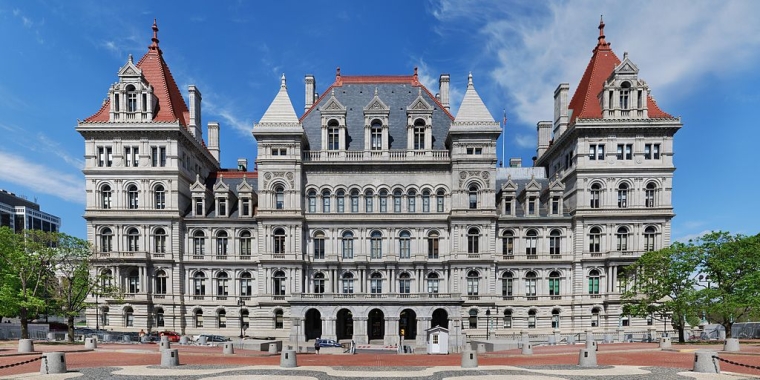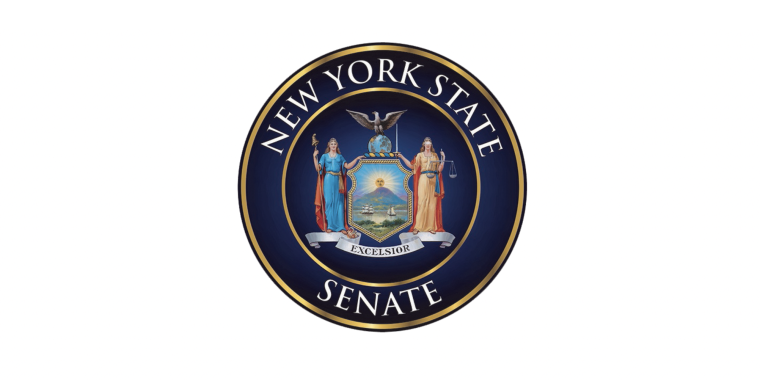
Testimony Before the Board of the Metropolitan Transportation Authority Regarding the Proposal to Increase Fares and Decrease Service on January 23, 2009
Liz Krueger
July 15, 2010
My name is Liz Krueger and I am the State Senator representing New York’s 26th Senate district, which covers the East Side of Manhattan and Midtown. I am here to express my opposition to Metropolitan Transportation Authority’s proposal to implement drastic fare increase and service decreases service to close the $1.5 Billion gap in its 2009-2010 operating budget.
The MTA’s current fiscal crisis should surprise no one. For years, City and State leaders have taken credit for rebuilding the system, cut ribbons on expansion projects, and financed capital improvements with excessive debt. It is almost fitting that the damage wrought by these policies comes to fruition as our nation comes to terms with a fiscal crisis widely attributed to banks and consumers taking on excessive debt.
One need only review the fiscal summaries of the last three MTA Capital Budgets to understand why the MTA finds itself in its current fiscal crisis. Between 1992 and 1999, NYS and NYC contributed 9% to the $18.1 Billion MTA Capital Budget, debt covered 59% of the budget. In the 2000-2004 MTA Capital Budget, NYS and NYC contributed 2% to the 21.1 Billion budget; debt covered 67% of the budget. For the 2005-2009 MTA Budget, NYS and NYC contributed 19% to the $21.3 Billion budget; debt covered 50% of the budget. The MTA has done a good job improving the system and rebuilding from its state in the 1980s. But without additional revenue, the only option to finance these improvements has been with debt.
In fact, the MTA is the fifth largest debtor in the United States, after California, Massachusetts, New York State and New York City. While it is reasonable to finance some capital improvements with debt, policy makers have not been honest about the true costs of maintaining our public transportation infrastructure.
I have long criticized such irresponsible policies. As the recently appointed Vice Chair of the Senate Finance Committee, I look forward to working with the MTA to explore new revenue streams and determine a fair solution to this fiscal crisis that doesn’t put the burden solely on the backs of subway and bus riders.
The significance of the $1.5 Billion shortfall is reflected in the proposed service cuts, which MTA CEO/ Executive Director Elliot Sander has characterized as “draconian.” Without State and City assistance, the MTA will increase fares by 23% and eliminate 3 subway lines and dozens of bus lines. By the MTA’s own estimates, fare increases of this magnitude will result in riders paying an eye-popping 83% fare burden. A fare burden of this size will only further fiscally impact millions of New Yorkers in a time of economic recession.
The proposed 2008-2009 budget will seriously impact service in the 26th Senate district. The budget proposes eliminating the W train. This train serves as a critical link for East Siders traveling from 59th Street and Lexington Avenue to jobs in the Times Squares and Heralds Square business districts. While N service will remain and Q service will be extended to Astoria-Ditmars, the MTA has not guaranteed that headways on the Broadway line will remain at current levels of service.
Furthermore, the MTA proposes increasing seat loaded capacity to 125% for midday service on the 1, 4, A, E, and F trains and on the 1, 4, 5, 6, A, B, E, F, N, Q, and R trains. This will decrease customer’s ability to find a seat, and increase wait times by 1-2 minutes. Weekend headways will increase from 8 to 10 minutes on the A, E, F, N, Q, and R trains. Headways for all late night service will increase from 20 to 30 minutes.
Bus service will also suffer dramatically under this budget. A January 4th article in the Daily News noted that these cuts would eliminate almost all late night bus service in Manhattan below 96th Street. Indeed, current plans will cut late night service in my district on the M1, M2, M16, M23, M42, M50, M66, M79, M96 and M104. The City that never sleeps will no longer provide bus service that operates twenty-four hours each day.
Finally, the MTA proposes eliminating the M6, M10, M18, M27, X25, X27 and X28, eliminating weekday service on the M30, and weekend service on the M21 and M50 routes.
To increase revenues, the MTA has proposed increasing fares system wide by 23%. This could translate into a base fare of up to $2.50, a 30-day unlimited fare of $103, or the elimination of the pay-per ride bonuses on purchases of $7 or more. In addition, the MTA has proposed increasing fares on access-a-ride by up to 250%, from $2 to $5. An increase of this magnitude on the access-a-ride population, many of whom cannot work and live on small, fixed incomes, is unconscionable.
To address the MTA’s fiscal problems, Governor Paterson appointed former MTA Chairman Richard Ravitch to examine the potential for new revenue streams. In December, Mr. Ravitch released a set of recommendations calling for the implementation of a small income tax surcharge paid by employers, fares increases of 8%, and the introduction of tolls to the East and Harlem River Bridges.
Share this Article or Press Release
Newsroom
Go to NewsroomSenator Krueger's February 2025 Update
February 28, 2025


Statement from Senator Liz Krueger On Mayor Eric Adams
February 18, 2025
